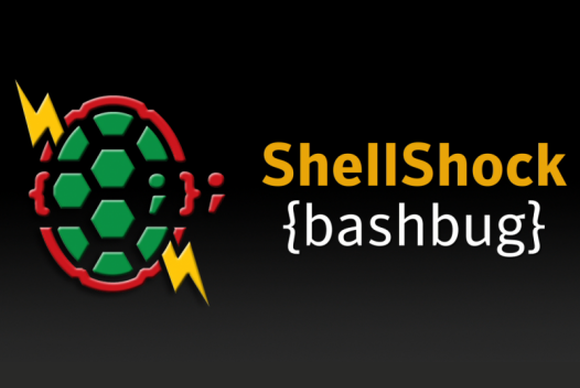At this point you may have found out newly about another bug found in the Bash shell. Furthermore, unless you’re a software engineer or security master, you’re likely thinking about whether you ought to truly stress. The short answer is: Don’t alarm, yet you ought to certainly take in more about it, in light of the fact that you may be in contact with powerless devices.
This bug, called “Shellshock” by Security researchers, influences the Unix summon shell “Bash,” which appears to be a standout amongst the most well-known applications in those frameworks. That incorporates any machine running Mac OS X or Linux. The “shell” is a bit of programming that permits a PC to communicate with the outside (you) by deciphering content. This helplessness influences the shell known as Bash (Bourne Again SHell), which is introduced on PCs, as well as on numerous apps (locks, cams, internal/external storages and mixed media apps, and so forth.) that utilization a subset of Linux.
The bug is a bit hard to clarify without getting specialized technical words and specifying some programming definitions, yet hold on for us, on the grounds that it’s not hard to get it. Essentially, hacker can run code by just requesting fundamental data from your PC, or your server. Presently, your PC is in all probability unaffected on the grounds that you are (and ought to be) running a firewall and blocking service which demands not to launch bugs by regional standards by the product officially to approve to run, however servers and IoT gadgets are an alternate issue.
What are the attacker capabilities?
The remote control (over the web or a system) of additional code could let an assailant burden malware on a system framework and take private data, erase records, actuate your cam, open a lock and, well, do essentially anything with a little know-how. Be that as it may, as we specified, this is not something that ought to matter much on a client’s PC with a working firewall, in light of the fact that it hasn’t been demonstrated conceivable to exploit the bug under that situation.
A server, well, that is a totally distinctive story, on the grounds that a server needs to listen to demands so as to “serve” (play on words planned) its motivation. This implies that by asking for any information and running malevolent code, an attacker can contaminate any influenced server, which is around 60-70 percent of web servers out on the web, most switches (even your home switch) and numerous devices (counting security cams and smart devices – which don’t appear to be so genius right about at this point). This is on account of smart machines are a type of servers which may be vulnerable to bugs.
Who may fall a victim?
In fact, any PC or framework with bash introduced is powerless. Since bash is introduced as a matter of course on Unix frameworks, that incorporates a ton of PCs.
Windows PCs are safe; they don’t utilize bash. Yet, in the event that you’re utilizing a Mac or running Linux, Ubuntu, or some other Unix flavor where bash is the default translator, then you could be at danger.
Simply on the grounds that your PC is defenseless against Shellshock, nonetheless, doesn’t mean programmers can target it. For them to do as such, they’d must have the capacity to get to your PC’s bash program by means of the Internet.
In the event that your PC is joined with the Internet through a secret key secured remote system or physically by means of an Ethernet link you’re still essentially safe. In case you’re utilizing an open, untrusted Wi-Fi unite, however, you could hypothetically be powerless against a Shellshock misuse.
Need a secure Wi-Fi connection? Why don’ you find a VPN sercice for Linux?
Indeed, even that is greatly far-fetched, however. The no doubt victims, as per digital security magazines, are Internet servers and related substantial PC framework.
How to fix Shellshock bug?
It’s super easy to take care of this issue. Numerous product engineers have officially issued patches and more are being discharged by the hour. Two of the most well known Linux apps, Red Hat and Ubuntu, as of now have patches accessible, and we think Apple will soon discharge it’s alter. Overhauling a framework takes no time. It’s a straightforward procedure and its a typical undertaking for most clients. The issue is with frameworks that are not frequently overhauled. Case in point: It’s not extremely normal to upgrade the product on your switch, and even less basic to redesign something like an entryway bolt, a light switch or a security cam.
The IOT entangles the circumstance in light of the fact that there are numerous more devices that ought to be redesigned, and for some, the makers may not even issue patches. Notwithstanding, the greater part of the gadgets are arranged to capacity in a safe way, behind a firewall. In any case, in the event that you think your “things” utilize a form of Linux (and there’s a decent risk they do), we prescribe you check for upgrades and even ask about them from the designer.
How everything adds up is: this is a genuine bug, yet fixes are accessible and ought to be introduced immediately. However, there’s doubtlessly we’ll be listening to bounty all the more about Shellshock and the issues it can bring about in the advancing days and weeks – particularly since its gone unnoticed for around 20 years. There’s a considerable measure of openings out there to fix.
Update: In an announcement to iMore, an Apple agent said “the larger part of OS X clients are not at risk…With OS X, frameworks are safe naturally and not presented to remote endeavors of bash unless clients arrange progressed UNIX administrations.” According to Apple, there is a patch nearing soon for those clients who could be uncovered.




